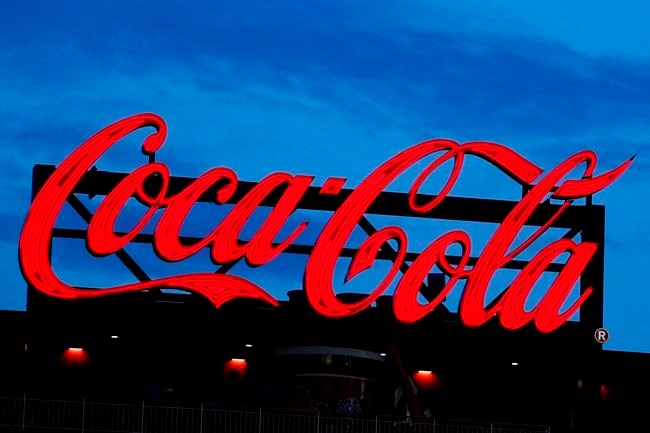Coca-Cola's revenue plunged 28% in the second quarter, but the company thinks the worst could be behind it.
Coke Chairman and CEO James Quincey said sales improved sequentially in May, June and July despite surging cases in key markets like the U.S., Iran and Australia.
While the path forward is unclear and the global economic recovery will take years, Quincey said it's unlikely that the world will see another worldwide lockdown as it did earlier this spring. Even in countries that have seen virus flareups, like Japan, sales have not fallen as far as they did the first time, Quincey said.
“I am pretty confident the second quarter will ultimately prove to be the most difficult and the most impactful quarter,” Quincey said Tuesday in a conference call with investors.
The sales volume of Coke based on the number of unit cases declined 25% in April compared to the previous year. By June, that decline stood at 10%. In China, case volumes actually rose for the quarter.
Still, the recovery will be bumpy. Half of Coca-Cola's sales come from stadiums, movie
Fast food restaurants saw less impact as sales continued through drive-thru windows, Quincey said. But sales at office buildings have ground to a halt.
Quincey said the pandemic has accelerated Coke’s plans to cut slow-selling “zombie brands" like Odwalla juice, which it will stop producing next week.
Coke has 400 brands, more than half of which are single-country brands that make up less than 2% of revenue, Quincey said. Going forward, he said, Coke will prune some of those brands and invest in bigger or more promising brands like Aha sparking water.
The virus is also forcing other changes. Quincey said affordability is a major issue, as people have less disposable income to spend on drinks. So the company is offering smaller pack sizes and increasing refillable bottles in places like Brazil.
Coke is also meeting consumer demands for contactless service by introducing a mobile pay option for its 52,000 Freestyle soda dispensers, which let customers mix sodas and pour them into their own containers. Mobile payment will roll out to U.S. Freestyle dispensers by the end of this year, the company said.
Coke said sales of water and sports drinks dropped 24% in the second quarter, while coffee and tea sales plunged 31% as the company temporarily closed its Costa coffee stores in Europe. Soft drink sales fared better, falling 12% globally. Coca-Cola Zero Sugar sales fell just 4%.
In North America, Atlanta-based Coke's home market, customers bought more Simply and Minute Maid juices and Fairlife milk, offsetting losses elsewhere. Case volumes in the region fell 16%.
Coke reported net income of $1.8 billion for the April-June period, down 32% from the same period a year ago. Excluding one-time items, the Atlanta company earned 42 cents per share. That tops Wall Street’s per-share expectations by 2 cents, according to analysts polled by FactSet.
Coke’s revenue fell to $7.2 billion, matching expectations.
Shares rose 3% to $47.60 in morning trading.
In response to global protests over the death of George Floyd, Coke has committed to spending $500 million with Black-owned suppliers in the U.S. over the next five years. It has paused spending on social media for the month of July in response to claims that Facebook is not doing enough to combat hate speech.
Dee-Ann Durbin, The Associated Press



